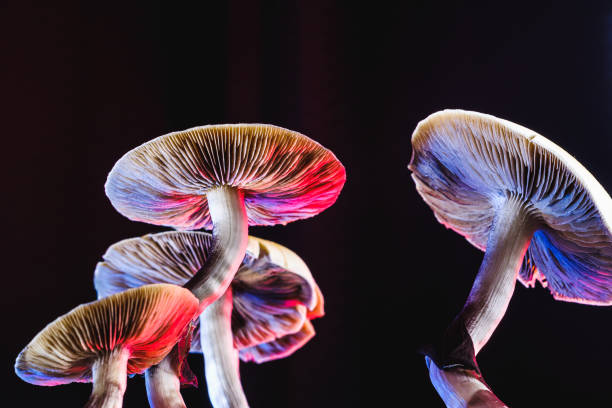Research indicates that a single dose of the psychedelic drug psilocybin can help regrow neuronal connections in depressed patients.
In recent years, magic mushrooms have garnered a lot of attention in the field of medicine. Its active compound, psilocybin is the main source of attraction. The psychedelic drug has shown to be effective at treating major depressive disorder. However, the exact mechanism behind its therapeutic effects remains unclear. Now a study from Yale has shown that a single dose of the psychedelic when given to mice can trigger an increase in neuronal connections within the brain.
It was a real surprise to see such enduring changes from just one dose of psilocybin. These new connections may be the structural changes the brain uses to store new experiences.
Professor Alex Kwan, study author
Previous research has shown that people who suffer from depression often have a loss of neuronal connections within the prefrontal cortex. According to the study published in the journal Neuron, researchers noted an immediate increase in dendritic spines within the frontal cortex of the mice. Dendritic spines are tiny protrusions present on nerve cells that help neurons communicate. These changes were visible within 24 hours of administration of the dose.
We not only saw a 10% increase in the number of neuronal connections, but also they were on average about 10% larger, so the connections were stronger as well
Professor Alex Kwan, study author
Long-Lasting Magic
Study author, Kwan and his team used a laser-scanning, two-photon microscopy technique to image the dendritic spines and track their formation in the mice. They not only noticed an increase in the number, but also the size of the dendritic spines. Moreover, the changes persisted a month later.
Additionally, researchers also noted an increase in neurotransmitter activity within mice exposed to stress. Thus, confirming the role of the compound in alleviating depression. However, psilocybin is a known hallucinogen and is often used as a recreational drug, so the researchers worried about its unwanted side effects in some people.
Therefore, researchers aimed to investigate whether the neuronal effects of psilocybin are maintained when its psychoactive effects are blocked. They administered the compound ketanserin to the mice. This compound inhibits serotonin receptors in the brain with which psilocybin binds to produce its hallucinogenic effects. As a result, the mice did not experience a twitch in their heads, and the formation of neuronal connections remained unaffected. Thus, demonstrating that psilocybin’s therapeutic property is not based on its psychedelic effects.
However, conducting studies on mice is not enough. More research is needed to study the drug’s effects on humans.
Reference:
Ling-Xiao Shao, Clara Liao, Ian Gregg, Pasha A. Davoudian, Neil K. Savalia, Kristina Delagarza, Alex C. Kwan. Psilocybin induces rapid and persistent growth of dendritic spines in frontal cortex in vivo. Neuron, 2021; DOI: 10.1016/j.neuron.2021.06.008




